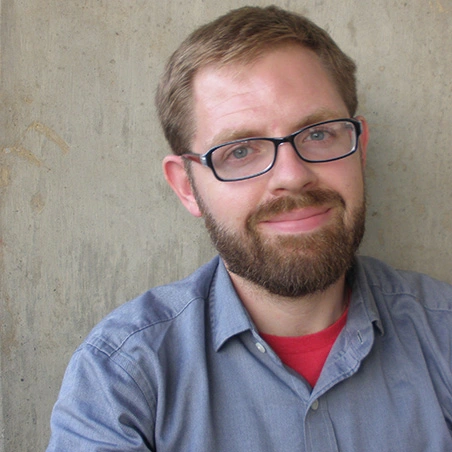Dr. Michael Dwyer Awarded Norman Johnston Faculty Fellowship
Humanities and Social Sciences fellowship spans the 2024-2026 academic years
Dr. Michael D. Dwyer, associate professor of Media and Communication, has been awarded the Dr. Norman Johnston Faculty Fellowship in the Humanities and Social Sciences, beginning June 1, 2024, and ending May 31, 2026.

“I think the best word to describe how I feel is gratified,” Dwyer said. “When I got hired here at Arcadia, faculty made a point of introducing me to Norman Johnston, and I think that’s because he represents a model of producing scholarship that is engaged in the world and reaches out to people outside of our classrooms here. Doing academic research can feel very isolating, so it’s honestly energizing to get recognition and support for something that I’ve been working on for so long.”
The Johnston Faculty Fellowship honors the late Dr. Norman Johnston, a valued colleague who remained active as a researcher, scholar, professor, author, and university citizen from 1962 to 2012, one of the longest records of service of any faculty member. The purposes of the Johnston Faculty Fellowship are to encourage talented and dedicated faculty members to excel in research and scholarship in the Humanities and Social Sciences, and to share their knowledge with the University community.
Dwyer’s research project for the Fellowship explores the relationship between popular media, urban space, and the political and economic processes of deindustrialization. He intends to use his Johnston Faculty Fellowship funds for public talks regarding his forthcoming book “Tinsel and Rust: How Hollywood Manufactured the Rust Belt,” and research for future writing on deindustrialized cities and popular media. The book is an examination of how Hollywood helped to define and circulate the idea of the Rust Belt, and the ways that cities like Pittsburgh, Cleveland, and Detroit have attempted to use filmmaking as a way to transform their postindustrial public images.
“Practically speaking, this Fellowship will give me the chance to share some of my research with people and institutions that have lived through the “rusting” process, as well as do some public screenings for members of the Arcadia community,” Dwyer said. “In the process, I’ll also be able to investigate how the dynamics I found in the Rust Belt play out globally, which I hope will lay the groundwork for some new research in that area.”
The project is also deeply personal for Dwyer.
“I am from a Rust Belt town and I was educated in Rust Belt schools,” he explained. “There was a shuttered steel mill next to my high school. So, I have always been very aware of the ways that the media creates a sense of place, and tells a story about how places got to be what they are. It is really important to me that people who have lived through the economic process of deindustrialization and who still live in these places have a chance to engage with this research. This Fellowship helps me do that, and for that I’m very grateful.”
Dwyer’s broader research interests include the relationship between popular narratives and cultural memory, the interaction between popular music and Hollywood film, fan cultures, and the politics of DIY arts and music. His writing has appeared in outlets like The Journal of Popular Music, The International Journal of Communication, Alphaville, Flow, and In Media Res.


